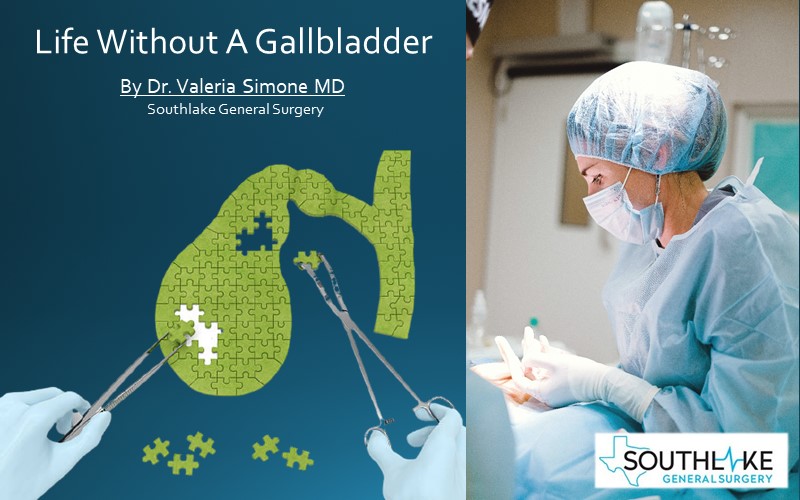It’s normal for individuals to have their gallbladder removed sooner or later. This is part of the way since it is feasible to live a long and healthy life without a gallbladder. Read More: How to live without a gallbladder?
Gallbladder removal surgery in medical terms is known as cholecystectomy. An individual can have their gallbladder removed for many reasons:
- Gallbladder infections
- Gallstones in the gallbladder (cholelithiasis)
- Gallstones in the bile duct (choledocholithiasis)
- Gallbladder inflammation (cholecystitis)
- Large gallbladder polyps
- Pancreas inflammation (pancreatitis) due to gallstones.
An individual can easily live a healthy lifestyle without the gallbladder; however, it is mandatory to make a few adjustments in the lifestyle and eating habits to keep away from any health issues.
What is the function of the gallbladder?
An individual can live without a gallbladder, however, it’s imperative to begin by understanding the function of the gallbladder in our body.
The gallbladder is a small pear-shaped digestive organ located in the abdomen, behind the liver. The gallbladder connects the liver through the common bile duct to pass the bile through the hepatic ducts into the gallbladder and into the duodenum.
The gallbladder function as a storage space for bile that serves to help our body to break down fat and digest fatty meals. When we eat, the gallbladder releases bile into the small intestines to break down fats.
An individual without a gallbladder refers to no storage facility for bile. This means once bile is released from the liver it will directly move to the small intestines. This condition still allows an individual to digest foods. But an excess number of oily meals or high-fiber meals get difficult to digest. This can cause gas, bulging, and diarrhea.
What changes are required in diet after the removal of the gallbladder?
Making a couple of essential dietary changes will assist our body to adapt to changes in the manner bile is delivered.
Reduce or Avoid Fatty Meals
Simply avoid greasy and fatty meals that contain more than 3 grams of fat per serving. Check the ingredients of packed food like processed meats, sauces, dairy products, etc. which at times contain more fat than you expect.
Different food varieties to approach balance include — beef, sausage, chips, dairy product (full-fat milk, cheese, cream, etc.), fried foods, and food that contains a good number of vegetables, peanuts, olive, and canola oil.
Six small meals throughout the day
Avoid eating most of your food throughout 3 large meals. This can overpower your digestive tract since the liver doesn’t produce enough bile to process large meals.
Try and make a diet plan with 6 small meals that include 300 to 400 calories all at once. Try to incorporate lean meats like fish, chicken without skin, etc. You can also include fresh juices and green vegetables in your meals.
Reduce Fiber Consumption
Avoid taking high-fiber meals after gallbladder removal surgery, it can create gas, bloating, pain in the stomach, and diarrhea.
Try to skip these high-fiber foods to reduce your fiber consumption: These include:
- Beans, cabbage, cauliflower, broccoli.
- Avoid nuts like almonds and peanuts.
- The bread is rich in high-fiber like whole grain or whole wheat bread.
You don’t have to completely remove these food varieties from your eating routine. Simply start with more modest amounts, and progressively increment your portions as you sort out what your body can deal with.
Reduce caffeine consumption
Food or beverages that include caffeine such as tea and coffee can increase and create problems like gas, bulging, and pain in the stomach. Since caffeine produces stomach acid and it can quickly make your stomach empty more than expected. In the absence of concentrated bile to break down stomach substances moved into the small intestine; the common symptom of gallbladder removal can be exasperated.
Likewise, with your fiber consumption, you simply need to restrict caffeine intake while you recuperate from the surgery. You can progressively begin adding more to your eating regimen as your body changes.
Adjustment in Lifestyle
Maintain a diet chart and pay close attention to how your body responds to explicit food sources, particularly those high in fats, acids, or spices, and record the body’s reactions. Make a list of food items and the amount of food you consume every time.
Divide your daily meals to help and identify the pattern in your symptoms, which can assist you with distinguishing explicit food sources to keep away from, limit, or have a greater amount of. This can make the recuperation process and overall adjustment simpler and more agreeable.
What is the life expectancy without a gallbladder?
If an individual has a gallbladder or does not, it hardly leaves any effect on life expectance. A few changes in your regular meal are recommended to expand your life expectancy. Several small meals in a day, low fat, less oily, reduced dairy products along with processed food will help in weight loss. An individual with a healthy weight can decrease the risk of heart problems, high blood pressure, diabetes, and cancer. Consuming fewer calories in your daily diet also helps to strengthen your liver by allowing your body to easily digest the food and use energy even more productively.
Viewpoint
An individual can live a sound and healthy life even without a gallbladder. This doesn’t leave any impact on life expectancy. The only thing that needs to be considered is the diet plan after the gallbladder removal surgery to help you live a longer and healthy life.
Appointment
For more information on Gallbladder Surgery (cholecystectomy), Diet after gallbladder removal surgery, treatment of Gallstones, and consultation with Dr Valeria Simone MD. Please contact our healthcare expert today for a quick appointment at +1 (817) 748-0200.

